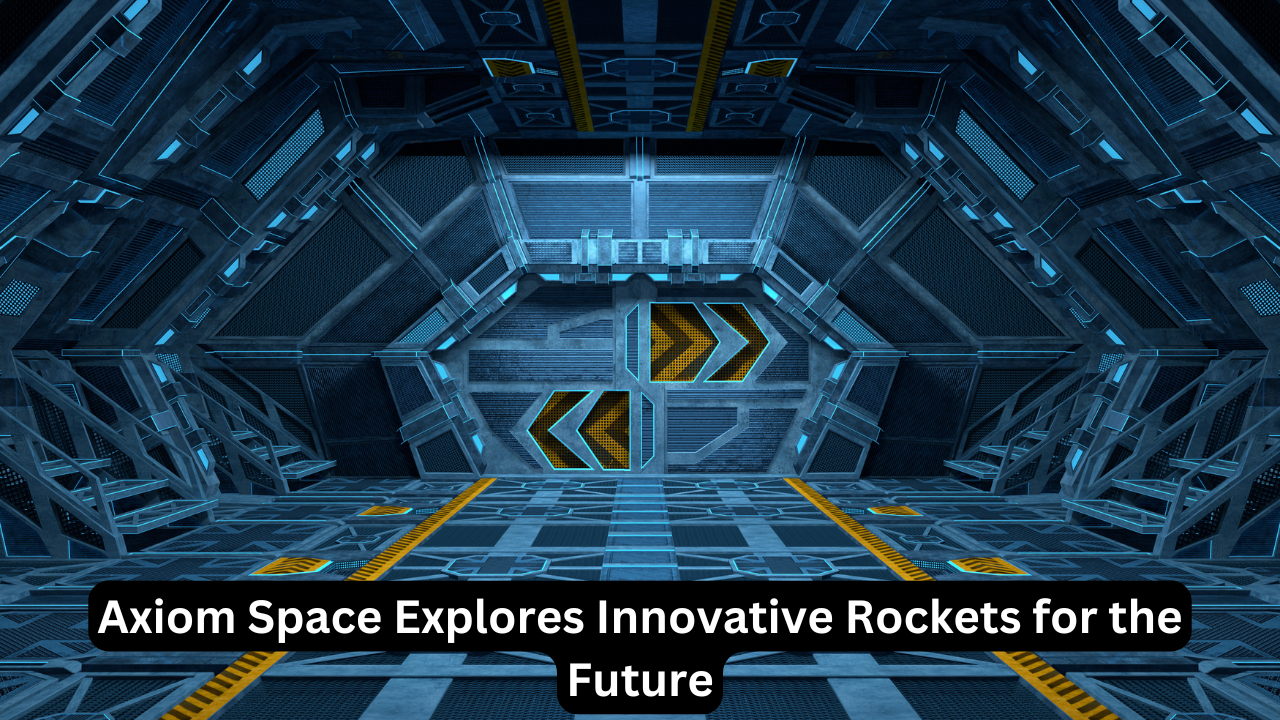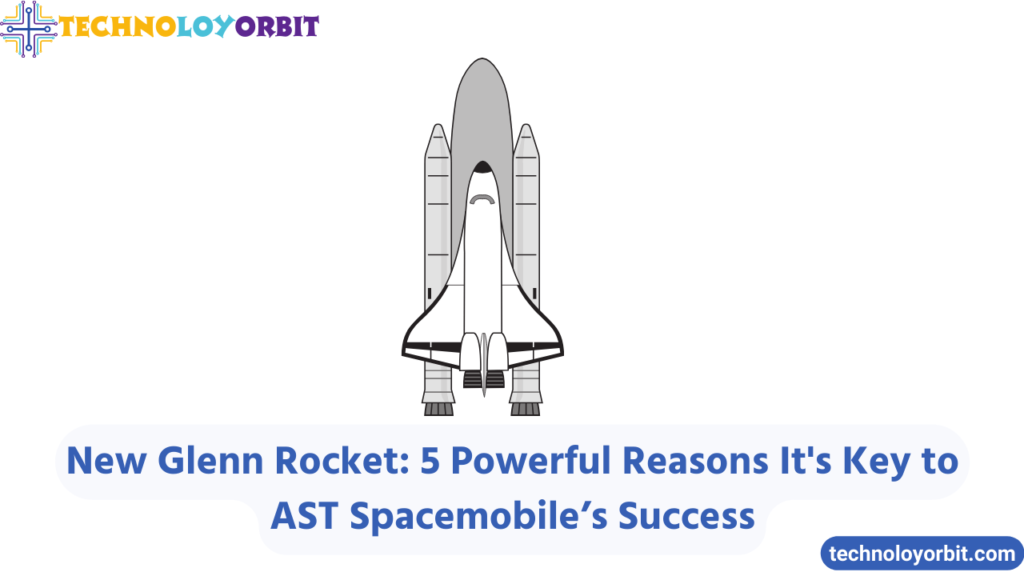Axiom Space explores partnerships with India and Europe to secure reliable rockets for building its private space station and advancing its ambitious orbital goals by 2026.
The private space industry is entering a new era of innovation and collaboration, with companies like Axiom Space leading the charge. Based in Houston, Texas, Axiom Space is not only crafting futuristic visions but actively working on constructing a private space station that could redefine humanity’s relationship with low Earth orbit. Recently, the company has made headlines by exploring partnerships with India and Europe for rocket launches and raw material transportation. This strategic move underscores the growing interdependence of global space players in achieving monumental goals.
In this article, we will delve into why Axiom Space explores these international partnerships, what makes Indian and European rockets appealing, and how this initiative aligns with its grander vision of constructing an independent space station. We will also discuss challenges and potential solutions, along with frequently asked questions about Axiom Space’s mission.
Why Axiom Space Is Looking to India and Europe

Diversifying the Supply Chain
As space exploration becomes increasingly commercialized, companies like Axiom Space aim to mitigate risks associated with overreliance on a single region. Partnering with multiple countries provides a diversified supply chain, ensuring smooth operations even in unforeseen circumstances like geopolitical tensions or manufacturing delays. Both India and Europe offer technologically advanced, cost-effective solutions that make them ideal candidates for collaboration.
India’s Rising Space Capabilities
India has emerged as a significant player in the global space industry. The Indian Space Research Organisation (ISRO) has developed cost-effective, reliable rockets like the Polar Satellite Launch Vehicle (PSLV) and the Small Satellite Launch Vehicle (SSLV). Startups such as Skyroot Aerospace and Agnikul Cosmos are further revolutionizing the sector by producing affordable, multi-stage rockets capable of delivering payloads to low Earth orbit. The burgeoning Indian private space sector also benefits from government policies encouraging private participation, a trend Axiom Space explores to its advantage.
Europe’s Advanced Rocketry
Europe’s Ariane 6 rocket, built by the European Space Agency (ESA), is another strong contender. Known for its high payload capacity and precision, the Ariane 6 represents cutting-edge space technology. With its successful inaugural flight deploying nine satellites, the rocket has proven its reliability, making it a potential launch vehicle for Axiom’s modules.
Axiom Space’s Vision for Its Private Space Station
Foundation on the ISS
Axiom Space’s private space station journey began with a NASA contract in 2020 to construct a habitable module that would attach to the International Space Station (ISS). This module, being developed by Thales Alenia Space in Europe, will lay the groundwork for future station expansion.
Step-by-Step Expansion
The private station will feature at least three more modules added in phases. Each module is designed to perform specific functions, ranging from habitation to power generation. Eventually, the station will detach from the ISS and operate as an independent orbital outpost, capable of replacing the ISS when it retires in 2030.
Key Features of the Axiom Space Station:
- Modular architecture for scalability.
- Advanced thermal power module for free-flying operation.
- Support for diverse missions, including research, manufacturing, and tourism.
Challenges and Opportunities

Challenges
- Complexity in International Collaboration
- Negotiating with multiple governments and space agencies requires overcoming bureaucratic and regulatory hurdles.
- Aligning standards and protocols between nations could delay the project.
- Cost Management
- While international rockets are cost-effective, integrating them into Axiom Space’s supply chain without exceeding budget constraints is challenging.
- Technological Integration
- Synchronizing cutting-edge technology from different regions to fit Axiom’s modular architecture demands meticulous engineering.
Solutions
- Standardized Agreements
- Developing frameworks for technology sharing and mission collaboration can streamline processes.
- Optimized Budget Allocation
- Leveraging India’s cost-effectiveness alongside Europe’s precision can create an ideal balance between affordability and reliability.
- Collaborative Testing
- Conducting joint simulations and tests ensures seamless integration of international technology.
How Axiom Space Explores International Partnerships
India’s Offerings
- ISRO’s SSLV: Perfect for small payloads at reduced costs.
- Private Contributions: Startups like Skyroot and Agnikul offer flexibility and innovation in multi-stage rocket designs.
European Contributions
- Ariane 6: Advanced capabilities with proven track records in satellite deployment.
- Thales Alenia Space: Expertise in modular construction and precision engineering.
Comparison Table: India’s SSLV vs. Europe’s Ariane 6
| Feature | SSLV (India) | Ariane 6 (Europe) |
|---|---|---|
| Payload Capacity | 500 kg to LEO | Up to 10,500 kg to GTO |
| Cost-Effectiveness | Highly affordable | Moderate to high |
| Technology Readiness | Developing rapidly | Proven and mature |
| Best Use Case | Smaller, cost-sensitive missions | Large, complex payloads |
Axiom Space Explores Innovative Rockets for the Future

Both India and Europe are actively innovating in rocketry, driven by government initiatives and private sector involvement. India’s foray into 3D-printed rocket engines and Europe’s advancements in reusable rocket technology make them frontrunners for partnerships with Axiom Space. By leveraging these developments, Axiom can achieve sustainable and efficient space station construction.
FAQs
1. What is Axiom Space’s mission?
Axiom Space aims to build the first commercial space station in low Earth orbit, offering opportunities for research, manufacturing, and space tourism.
2. Why is Axiom Space exploring partnerships with India and Europe?
These partnerships diversify Axiom’s supply chain and provide cost-effective, reliable launch solutions for transporting materials.
3. How does India contribute to Axiom Space’s goals?
India offers affordable rockets and advanced 3D-printed engines, making it a competitive choice for payload delivery.
4. What makes Europe’s Ariane 6 a strong contender?
The Ariane 6 is a proven, high-capacity rocket capable of handling complex missions, making it ideal for Axiom’s modular space station construction.
5. When will Axiom Space’s modules launch?
The first module is expected to launch in 2026, with additional modules being deployed incrementally.
6. What are the challenges of international collaboration in space exploration?
Challenges include regulatory hurdles, budget constraints, and technological integration between nations.
7. How does Axiom Space plan to replace the ISS?
By constructing its own orbital outpost that will detach from the ISS and become an independent free-flying station by 2030.
8. What role does private industry play in space exploration?
Private industry drives innovation, cost reduction, and new opportunities for collaboration, enabling ambitious projects like Axiom Space’s station.
Conclusion
The future of space exploration lies in collaboration, innovation, and global partnerships. By exploring options in India and Europe, Axiom Space is setting a precedent for how private companies can work with nations to achieve groundbreaking goals. With its ambitious plans for a modular private space station, Axiom is poised to redefine low Earth orbit’s possibilities, creating opportunities for scientific research, commercial endeavors, and even space tourism.
As Axiom Space explores these partnerships, it not only expands its technical capabilities but also showcases the potential of international cooperation in realizing humanity’s extraterrestrial ambitions. Please follow out blog Technoloyorbit.



